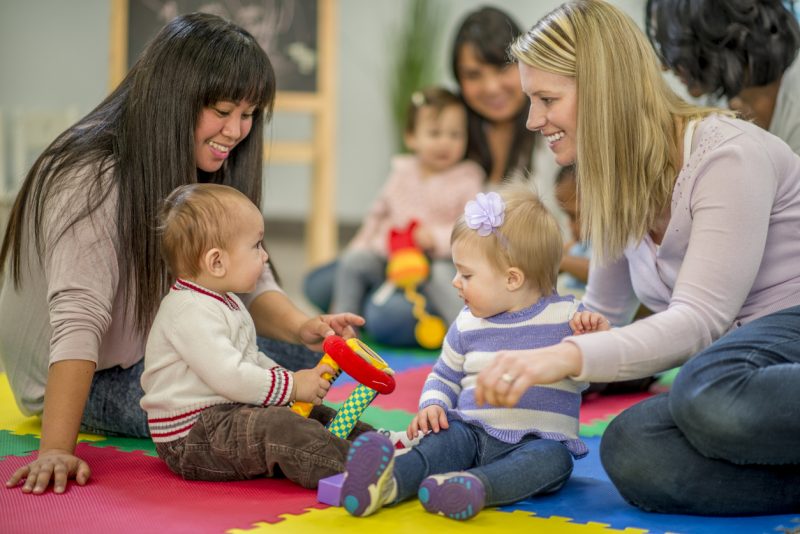Our Adventure-Immersion method uses a hands-on approach to stimulate every part of a child’s brain.
We aim to enhance motor skills as well as linguistic skills, and our native-speaking teachers incorporate movement and physical activity into each class.
With our variety of immersion activities, from workbooks to relay races and art projects to science experiments, we ensure that our students develop a love for learning Foreign Languages and never lose interest in the language.
Toddler Adventure classes
Research shows that babies are able to identify unique sounds in their mother’s native language just hours after they are born, suggesting that language learning actually begins in utero. This is why Language Adventures offers language classes for children as young as 12 months. Our Toddler Adventures classes, for children ages 1-3, most closely replicate how a child learns their first language, by hearing songs and nursery rhymes as well as playing with toys in the target language. With a parent or caregiver by their side in class, tots develop an early confidence in hearing a new language. There is no such thing as too early to start a second language, but there definitely is too late.
Preschool Adventure classes
For children ages three through five, we capitalize on their increased desire for independence. At this age, children are able to learn through social play. This is why Preschool Adventure classes focus on role-play activities, competitions, and collaborative projects. Our small class sizes allow our native-speaking teachers to engage the group as a whole, as well as address the individual needs of each child through one-on-one interaction.
Elementary Adventure classes
Kids ages five to eight still love being silly, but they also crave guidance in reading and writing as well as instructions for more complex games and puzzles.
For this age group, we strike the perfect balance between academic challenges and getting kids to giggle, all while immersing them in the Foreign language.
Preteen Adventure classes
As children approach the end of the “window of opportunity” for acquiring a language naturally, they require a slightly more focused method of language instruction.
In these classes, we tackle the written language and a wide variety of vocabulary and grammar structures without ever resorting to instruction in English or rote memorization.
Middle school Adventure classes
Students continue their language learning adventure by progressing to the next level of middle school Spanish. During the program students focus on the four key areas of world language study: reading, writing, listening, and speaking. Students should expect to be actively engaged in their own language learning, become familiar with phrases and common vocabulary, participate in simple conversations, comprehend a wide range of grammar patterns, and respond appropriately to basic conversational prompts, analyze and compare cultural practices, products, and perspectives of various Spanish-speaking countries, and take frequent assessments where their language development can be monitored.
High school Adventure classes
In this new Adventure, students are taught not only to master grammar but how to apply their knowledge through conversation in every day life. Our program satisfies the high school world language requirement for college admissions and prepares students for a future of speaking a second language. Each unit consists of a new vocabulary theme and grammar concept, reading, and listening comprehension activities speaking and writing activities, multimedia cultural presentations, and interactive activities and practices which reinforce vocabulary and grammar.
Who are this high school classes for?
-
- Students between the ages of 12 –18
- Homeschool, charter school, public and private school
- Students who are seeking an alternative program or independent study program
- Students wanting to achieve world language skills goals
- Advanced world language speakers who need levels 2, 3, or 4
- Students from bilingual backgrounds who need to focus on grammar and advanced concepts











